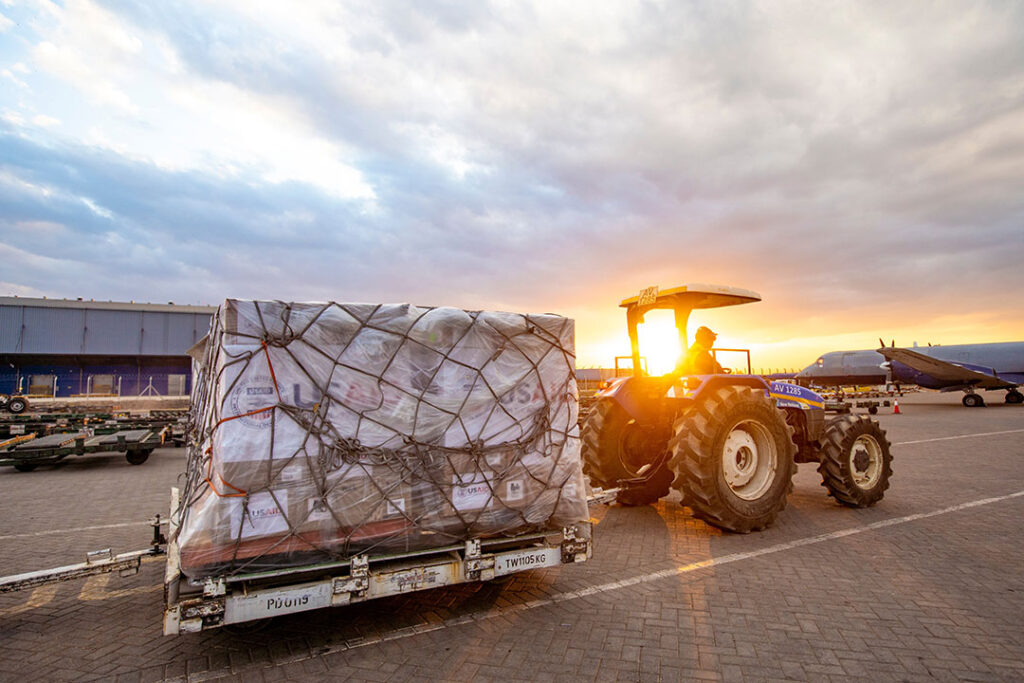ADF STAFF
The U.S. Agency for International Development (USAID) has donated 200 ventilators to Kenya as the country struggles to contain a surge in COVID-19 cases.
The U.S.-produced ventilators, which can offer life-extending support for seriously ill patients with breathing problems, are brand-new, “state-of-the-art” machines, the U.S. Embassy in Nairobi said in a news release.
USAID also offered technical assistance and service plans for the ventilators and delivered them to medical facilities. The agency helped train health care workers to use the ventilators and manage critically ill patients.
In June, Kenya’s Ministry of Health reported that the country of around 51.4 million people had just 189 ventilators available for COVID-19 patients. The breathing machines can enhance oxygen levels in patients whose lungs are failing. They work by moving oxygen in and out of the lungs through a tube inserted in a person’s airway.
COVID-19 has killed nearly 40,000 Kenyans, according to the Africa Centres for Disease Control and Prevention.
“Over 50 years of support from the United States for health providers and health systems has provided the foundation for Kenya’s ability to trace, test and treat patients to combat COVID-19,” U.S. Ambassador to Kenya Kyle McCarter said. “These ventilators are another example of American expertise and generosity in the global battle against COVID-19.”
The U.S. has committed 6 billion Kenyan shillings ($55.2 million) to Kenya’s COVID-19 response through equipment, testing, training and research, as well as supporting health, water, sanitation, education, employment and food security.
USAID delivered the ventilators in early October as Kenya grappled with a surge in cases, the majority of which were reported in Nakuru State in the western part of the country. Other hot spots were Nairobi and the port city of Mombasa.
Also in early October, USAID announced the implementation of a three-year, $7 million Local Works program to support communities in the Maasai Mara landscape and northern and coastal Kenya that are struggling with lost jobs and decreased tourism revenue because of COVID-19.
Those areas have long suffered from conflict, poverty, poor access to health care, and food and economic insecurity. The areas also face continued threats from wildlife poaching, invasions of desert locusts and land degraded by overgrazing.
Although Kenya has accepted U.S. assistance, its leaders and medical workers have demonstrated a willingness to confront the crisis. In August, President Uhuru Kenyatta announced plans for a COVID-19 vaccine consortium.
“Our research institutions, which are already doing great work, can now come together, bringing onboard all relevant stakeholders locally, but also partnering with those internationally and together sharpen their focus on the development as well as the testing of COVID-19 vaccines,” Kenyatta said in a televised address.

